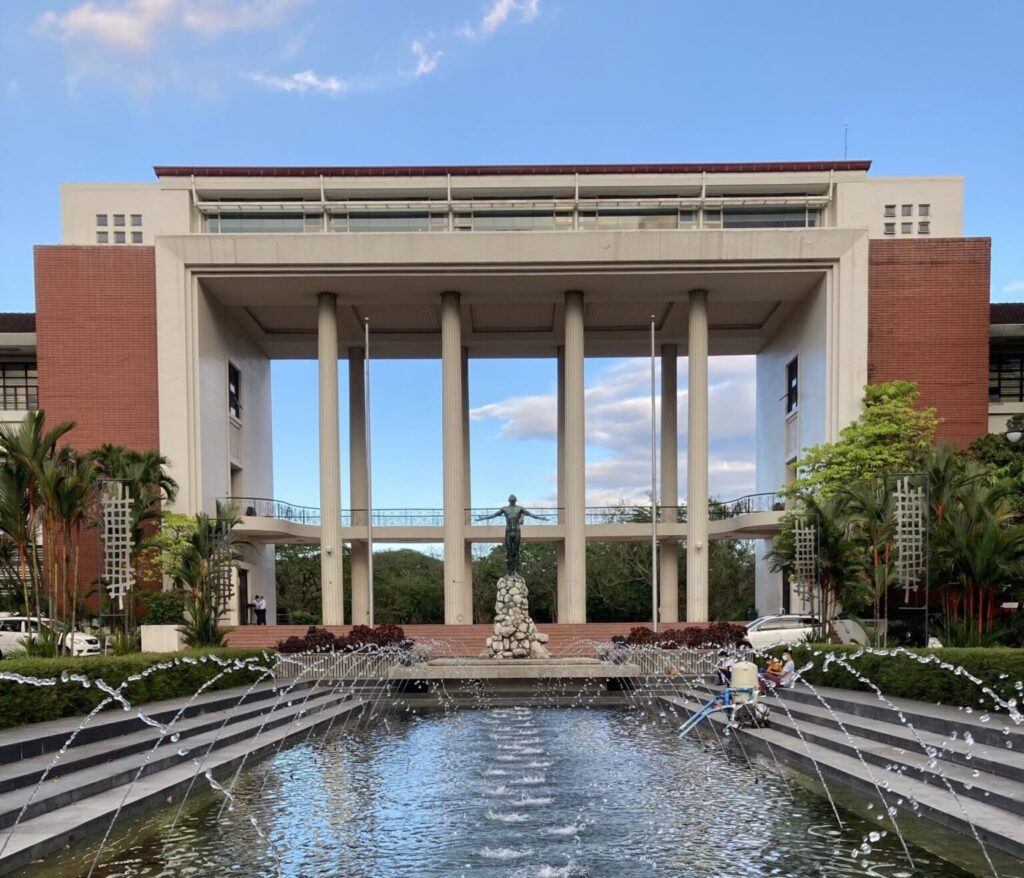
The University of the Philippines (UP) community expressed strong opposition to a newly signed “Declaration of Cooperation” between the university and the Armed Forces of the Philippines (AFP).
The agreement, signed by UP President Angelo Jimenez on Aug. 8, has raised alarms among faculty, students, and staff, who view it as a threat to academic freedom.
During a press conference in UP Diliman on Aug. 14, members of the All UP Academic Employees Union (AUPAEU) criticized the declaration.
Dr. Rommel Rodriguez, Vice President for Faculty of the AUPAEU, questioned the motives behind the agreement.
“Kooperasyon ba talaga ito o pakikipagsabwatan? Usapin ba talaga ito ng scholarship o intelligence work?” he asked, emphasizing concerns that the deal serves military interests rather than those of the UP community [Is this really cooperation, or is it collusion? Is this truly about scholarships, or is it intelligence work?],” Rodriguez also criticized Jimenez for signing the declaration without consulting various UP sectors.
He highlighted the administration’s failure to form the UP Committee on the Protection and Promotion of Academic Freedom and Human Rights, which the community has long demanded.
“Mabuo ang komiteong ito sa suporta ng mga constituent universities…Nais naming idiin na noon pa man ay hindi nakipagkaisa ang administrasyong Jimenez sa UP Community (hinggil dito) [This committee was formed with the support of constituent universities…We want to emphasize that the Jimenez administration has never aligned with the UP Community (regarding this matter)],”he said.
Aligned with UP mission
In response to the backlash, Jimenez defended the declaration, asserting it does not violate academic freedom and aligns with UP’s mission as the country’s top university.
He explained the declaration serves as a framework for cooperation and “won’t curtail academic freedom because UP researchers can choose and define their specific terms of engagement.”
He added, “Any activity undertaken shall be mutually agreed upon by both participants.”
Jimenez stressed the importance of collaborating with the AFP, saying it aligns with UP’s mission to shape public policy and improve lives through scholarship.
He noted the UP Center for Integrative and Development Studies (CIDS) will lead the effort, ensuring researchers can pursue relevant interests while maintaining high academic standards.
Critics, however, argue that the agreement legitimizes military intrusion into academic spaces and comprises the university’s independence.
Jimenez argued that UP CIDS is free to pursue research aligned with its mission and that cooperation with the AFP is part of a wider engagement strategy.
Other UP representatives joined Rodriguez in voicing their concerns. Prof. Danilo Arao from the UP College of Mass Communication and Dr. Jimmuel Naval, Dean of the UP College of Arts and Letters, also expressed alarm over the administration’s dealings with the military.
They urged the UP administration to reject the declaration and called on Jimenez to protect the UP community’s academic freedom and civil liberties, especially against recent baseless red-tagging by Sen. Ronald dela Rosa.


